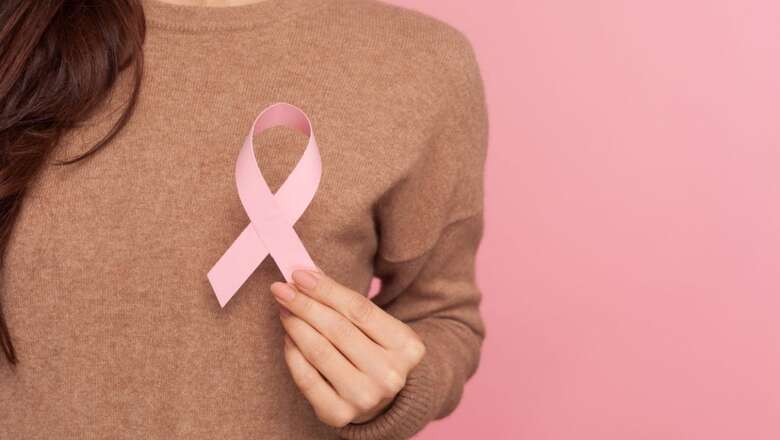
views
There has been a recent increase in the cases of breast cancer in the last few decades, making it to the list of most common cancers in the country and also one of the most common malignancies among women globally. As per studies, a matter of great concern is that a larger percentage of women have developed the disease at a younger age which makes early detection and intervention crucial in improving treatment outcomes and saving lives. That being said, it is very important to understand what is normal for one’s breasts and thus consult the doctor without any delay upon detecting even the slightest change to the breast, nipple, or underarm areas.
These can include anything, ranging from a small lump in the area to constant nipple discharge to breast thickening, skin dimpling, and irritation around the area.
This being Breast Cancer Awareness Month 2023, it is crucial to create awareness among women about the disease and the importance of early detection by educating them to empower them with knowledge about the risk factors, symptoms, and the importance of regular self-examinations.
Self-examination tips to detect breast cancer
Self-examinations are simple, cost-effective, and can be done in the privacy of one’s home. Knowing the correct method can help people become aware of the normal look and feel and quickly identify any changes or abnormalities. These quick scans include looking for any lump, changes in size or shape, dimpling of skin, discharge, inversion, or any unexplained pain in the breast.
In case of any such changes, one should contact the doctor at the earliest and seek timely medical attention.
While self-exams hold utmost importance, women must also be made aware that it rather complements regular clinical exams and mammograms.
Risk factors of breast cancer
When it comes to determining the risk factors of getting breast cancer, the chances increase as you become older. Among a few other factors include menstruation before the age of 12, not giving birth or having a first child, going into menopause after the age of 55, taking hormone replacement therapy for a long time, or having breast cancer in the family. According to the Centers for Disease Control and Prevention, there are also factors that cannot be changed like age, genetic mutations, having dense breasts, personal history of breast cancer, or other non-cancerous breast diseases, and exposure to certain drugs.
One can also consult their doctors for reducing the risks of getting breast cancer.




















Comments
0 comment